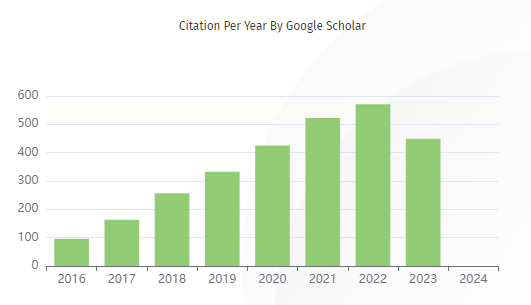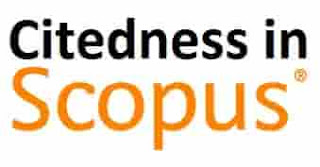Tingkat Keaktifan Komite Audit dan Manajemen Laba di Indonesia
DOI:
https://doi.org/10.12695/jmt.2018.17.2.2Keywords:
audit committee, meeting frequency, agency theory, monitoring, company earning management.Abstract
Abstrak. Penelitian ini menguji pengaruh tingkat keaktifan komite audit terhadap manajemen laba di Indonesia. Rerangka konseptual merujuk pada teori keagenan yang menyatakan bahwa tingkat keaktifan merupakan fondasi utama bagi komite audit untuk meningkatkan efektivitas monitoring. Teori ini memprediksi hubungan negatif antara tingkat keaktifan audit komite dengan manajemen laba. Pengujian hipotesis dilakukan dengan menggunakan sampel perusahaan manufaktur yang terdaftar pada Bursa Efek Indonesia selama periode tahun 2009 sampai 2014. Tingkat keaktifan mengacu pada jumlah rapat dan partisipasi anggota menghadiri rapat sedangkan manajemen laba diukur dengan rujukan pendekatan akrual. Analisa dilakukan dengan menggunakan regresi ordinary least square data panel. Hasil analisa menunjukkan bahwa frekuensi rapat berpengaruh secara insignifikan terhadap tingkat akrual, di lain pihak, tingkat partisipasi rapat berhubungan secara terbalik dengan akrual negatif. Hasil tersebut terbebas dari masalah sensitivitas interdependensi antar mekanisme governance internal. Namun demikian, temuan tersebut mengindikasikan kemungkinan adanya masalah kontijensi terhadap pengukuran dan sifat sampel yang digunakan sebagai basis pengujian.
Kata kunci: Komite audit, frekuensi rapat, teori agensi, monitoring, manajemen laba perusahaan.
Abstract. This study tests the effect of audit committee activeness on earning management in Indonesia. The conceptual framework refers to agency theory which states that the level of activeness is the main foundation for audit committee to improve the effectiveness of monitoring. This theory predicts the negative relationship between audit committee activeness and earning management. The hypotheses are tested on the data collected from sampled manufacturing companies listed in Indonesia Stock Exchange in the 2009-2014 periods. The level of audit committee activeness refers to the numbers of meetings and participation from audit committee members while earning management is measured by referring to accrual approach. The analysis is performed using ordinary least square regression on panel data. The analysis results show that the frequency of meeting has insignificant effect on accrual level, on the other side, the level of participation in the meeting has reverse relationship with negative accrual. The result is free from interdependence among internal governance mechanisms. However, the finding indicates the probability of contingency problem on the measurement and sample characteristic used as the basis in the analysis.
Keywords: Audit committee, meeting frequency, agency theory, monitoring, company earning management.
Downloads
References
Adams, R. & D. Ferreira (2007). A theory of friendly boards. Journal of Finance, 62(1), 217-250.
Adams, R., B. E. Hermalin & M. S. Weisbach (2008). The role of boards of directors in corporate governance: a conceptual framework and survey, National Bureau of Economic Research.
Adams, R. B. & D. Ferreira (2012). Regulatory pressure and bank directors incentives to attend board meetings. International Review of Finance, 12(2), 227-248.
Adams, R. e. B. & D. Ferreira (2008). Do Directors Perform for Pay? Journal of Accounting and Economics, 46(1), 154-171.
Adams, R. e. B. & D. Ferreira (2009). Women in the Boardroom and Their Impact on Governance and Performance. Journal of financial economics, 94(2), 291-309.
Agrawal, A. & C. R. Knoeber (1996). Firm Performance and Mechanisms to Control Agency Problems between Managers and Shareholders. Journal of financial and quantitative analysis 31(03): 377-397.
Aldamen, H., Duncan, K., Kelly, S., McNamara, R., & Nagel, S. (2012). Audit committee characteristics and firm performance during the global financial crisis. Accounting & Finance, 52(4), 971-1000.
Anderson, R. C., S. A. Mansi & D. M. Reeb (2004). Board characteristics, accounting report integrity, and the cost of debt. Journal of accounting and economics, 37(3), 315-342.
Armstrong, C. S., Blouin, J. L., Jagolinzer, A. D., & Larcker, D. F. (2015). Corporate governance, incentives, and tax avoidance. Journal of Accounting and Economics, 60(1), 1-17.
Barua, A., D. V. Rama & V. Sharma (2010). Audit committee characteristics and investment in internal auditing. Journal of Accounting and Public Policy, 29(5): 503-513.
Basil, A. N. (2012). The determinants of board meetings: evidence from categorical analysis. Journal of Applied Accounting Research, 13(2): 178-190.
Black, B. S., A. G. d. Carvalho & É. Gorga (2012). What matters and for which firms for corporate governance in emerging markets? evidence from Brazil (and Other Brik Countries). Journal of Corporate Finance, 18(4), 934-952.
Carver, B. T. (2014). The retention of directors on the audit committee following an accounting restatement. Journal of Accounting and Public Policy, 33(1), 51-68.
Chen, K. C. W., Z. Chen and K. C. J. Wei (2009). Legal protection of investors, corporate governance, and the cost of equity capital. Journal of Corporate Finance, 15(3), 273-289.
Chen, K. Y. & J. Zhou (2007). Audit committee, board characteristics, and auditor switch decisions by Andersen's Clients*. Contemporary Accounting Research, 24(4), 1085-1117.
Chou, H.-I., H. Chung & X. Yin (2013). Attendance of board meetings and company performance: evidence from Taiwan. Journal of Banking & Finance, 37(11), 4157-4171.
Dalton, D., Daily, C., Ellstrand, A., & Johnson, J. (1998). Meta-Analytic reviews of board composition, leadership structure, and financial performance. Strategic Management Journal, 19(3), 269-290.
Dalton, D., Daily, C., Johnson, J., & Ellstrand, A. (1999). Number of directors and financial performance: a meta-analysis. Academy of Management Journal, 42(6), 674-686.
DeZoort, F. T., Hermanson, D. R., Archambeault, D. S., & Reed, S. A. (2002). Audit committee effectiveness: A synthesis of the empirical audit committee literature. Journal of accounting literature, 21, 38.
Eshleman, J. D., & G. Peng (2014). Do big 4 auditors provide higher audit quality after controlling for the endogenous choice of auditor? Auditing: A Journal of Practice & Theory, 33(4), 197-219.
Feng, Y., Simon, G., Wanli, L., & Huaili, L. (2012). Determinants of audit committee meeting frequency: evidence from Chinese listed companies. Managerial Auditing Journal, 27(4), 425-444. doi: doi:10.1108/02686901211218003
Francis, B., Hasan, I., Song, L., & Waisman, M. (2013). Corporate governance and investment-cash flow sensitivity: Evidence from emerging markets. Emerging Markets Review, 15, 57-71.
GarcÃa, L. S., E. R. Barbadillo & M. O. Pérez (2012). Audit committee and internal audit and the quality of earnings: empirical evidence from spanish companies. Journal of Management & Governance, 16(2), 305-331.
Ghafran, C. & N. O'Sullivan (2013). The governance role of audit committees: reviewing a decade of evidence. International Journal of Management Reviews, 15(4), 381-407.
Giulio, G. (2011 ). Determinants of board and audit committee meeting frequency: evidence from Italian companies. Managerial Auditing Journal, 26(3), 208-229.
Goh, B. W. (2009). Audit committees, boards of directors, and remediation of material weaknesses in internal control*. Contemporary Accounting Research, 26(2), 549-579.
González, J. S. & E. GarcÃa-Meca (2014). Does corporate governance influence earnings management in Latin American Markets?. Journal of Business Ethics, 121(3), 419-440.
Habbash, M., C. Sindezingue & A. Salama (2013). The effect of audit committee characteristics on earnings management: evidence from the United Kingdom. International Journal of Disclosure and Governance, 10(1), 13-38.
Hoque, M. Z., M. D. R. Islam & M. N. Azam (2013). Board committee meetings and firm financial performance: an investigation of Australian Companies. International Review of Finance, 13(4), 503-528.
Hribar, P. & D. Collins (2002). Errors in estimating accruals: implications for empirical research. Journal of Accounting Research, 40(1), 105-134.
Jiraporn, P., M. Singh & C. I. Lee (2009). Ineffective corporate governance: director busyness and board committee memberships. Journal of Banking & Finance, 33(5), 819-828.
Keune, M. B. & K. M. Johnstone (2012). Materiality judgments and the resolution of detected misstatements: the role of managers, auditors, and audit committees. The Accounting Review, 87(5), 1641-1677.
Klein, A. (2002). Audit committee, board of director characteristics, and earnings management. Journal of accounting and economics, 33(3),375-400.
Leuz, C., D. Nanda & P. D. Wysocki (2003). Earnings management and investor protection: an international comparison. Journal of financial economics, 69(3), 505-527.
Lin, Y.-f., Y. M. C. Yeh & F.-m. Yang (2014). Supervisory quality of board and firm performance: a perspective of board meeting attendance. Total Quality Management & Business Excellence, 25(3-4), 264-279.
Maug, E. (1998). Large shareholders as monitors: is there a trade-off between liquidity and control? The Journal of Finance, 53(1), 65-98.
Méndez, C. F. & R. A. GarcÃa (2007). The Effects of ownership structure and board composition on the audit committee meeting frequency: Spanish Evidence. Corporate Governance: An International Review, 15(5), 909-922.
Millstein, I. & P. MacAvoy (1998). The active board of directors and performance of the large publicly traded corporation. Columbia Law Review, 98(5), 1283-1322.
Min, B. S. & P. Verhoeven (2013). Outsider board activity, ownership structure and firm value: evidence from Korea. International Review of Finance, 13(2), 187-214.
Mohid Rahmat, M., T. Mohd Iskandar & N. Mohd Saleh (2009). Audit committee characteristics in financially distressed and non-distressed companies. Managerial Auditing Journal, 24(7), 624-638.
Munisi, G. & T. Randøy ( 2013). Corporate governance and company performance across sub-saharan african countries. Journal of Economics and Business, 70, 92-110.
Persakis, A. & G. E. Iatridis (2016). Audit quality, investor protection and earnings management during the financial crisis of 2008: An International Perspective. Journal of International Financial Markets, Institutions and Money, 41, 73-101.
Raghunandan, K. & D. V. Rama (2003). Audit committee composition and shareholder actions: evidence from voting on auditor ratification. Auditing: A Journal of Practice & Theory, 22(2), 253-263.
Raghunandan, K. & D. V. Rama (2007). Determinants of audit committee diligence. Accounting Horizons, 21(3), 265-279.
Rhoades, D., P. Rechner & C. Sundaramurthy (2000). Board composition and financial performance: a meta-analysis of the influence of outside directors. Journal of Managerial Issues, 12(1), 76-91.
Samaha, K., H. Khlif & K. Hussainey (2015). The Impact of board and audit committee characteristics on voluntary disclosure: a meta-analysis. Journal of International Accounting, Auditing and Taxation, 24, 13-28.
Schwartz-Ziv, M. & M. S. Weisbach (2013). What do boards really do? evidence from minutes of board meetings. Journal of Financial Economics, 108(2), 349-366.
Stewart, J. & L. Munro (2007). The impact of audit committee existence and audit committee meeting frequency on the external audit: perceptions of Australian auditors. International Journal of Auditing, 11(1), 51-69.
Sultana, N. (2015). Audit committee characteristics and accounting conservatism. International Journal of Auditing.
Vafeas, N. & J. F. Waegelein (2007). The Association between audit committees, compensation incentives, and corporate audit fees.Review of Quantitative Finance and Accounting, 28(3), 241-255.
Xie, B., W. N. Davidson & P. J. DaDalt (2003). Earnings Management and corporate governance: the role of the board and the audit committee. Journal of Corporate Finance, 9(3), 295-316.
Zhang, Y., J. Zhou & N. Zhou (2007). Audit committee quality, auditor independence, and internal control weaknesses. Journal of Accounting and Public Policy, 26(3), 300-327.
Downloads
Submitted
Accepted
Published
How to Cite
Issue
Section
License

This work is licensed under a Creative Commons Attribution-NonCommercial-ShareAlike 4.0 International License. Copyright @2023. This is an open-access article distributed under the terms of the Creative Commons Attribution-NonCommercial-ShareAlike 4.0 International License (http://creativecommons.org/licenses/by-nc-sa/4.0/) which permits unrestricted non-commercial used, distribution and reproduction in any medium.

















